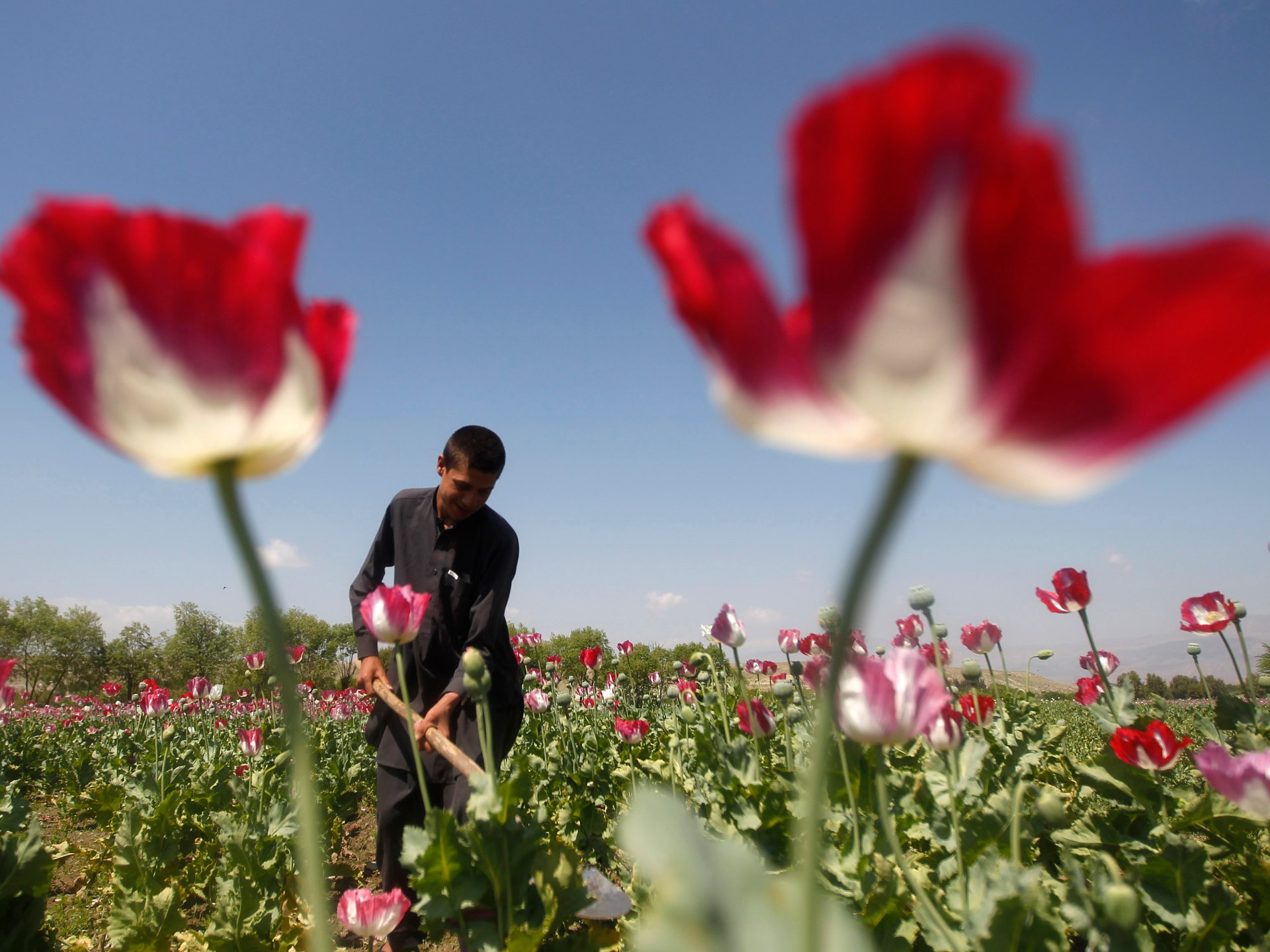In April 2022, Afghanistan’s Taliban rulers took step to eliminate the country’s drug industry, by banning poppy cultivation. This was a huge move given that Afghanistan had been the world’s largest opium producer, serving as a major source for heroin in Europe and Asia.

Also Read: Narendra Modi, Sheikh Hasina Inaugurate Agartala-Akhaura Rail link
The effects of this ban have been the subject of much scrutiny, and a recent report by the United Nations Office on Drugs and Crime (UNODC) on the changes that have occurred in the Afghan opium production landscape.
The UNODC report, published recently, provides insights into the impact of the Taliban’s poppy ban on Afghanistan’s opium production.
The report offers a detailed analysis of the changes in poppy cultivation, opium production, and their consequences. One of the findings in the report is the 95% decrease in poppy cultivation in Afghanistan.
At the end of 2022, poppy cultivation covered 233,000 hectares (575,755 acres), but by 2023, this had plummeted to just 10,800 hectares. The ban had effect on poppy farming across the country.
In tandem with the decline in poppy cultivation, opium production witnessed a decline as well. The report indicates that opium production dropped from 6,200 tons to a mere 333 tons in 2023. This represents a reduction in the supply of this illicit drug.
The report estimates that the 2023 heroin harvest in Afghanistan amounts to 24-38 tons, lower than the 350-580 tons estimated for 2022. This is a reduction in the production of one of the world’s most dangerous and addictive drugs.
The UNODC report on the economic fallout of the poppy ban. Farmer incomes in Afghanistan have plummeted by a striking 92% in 2023.
In 2022, poppy crops made up almost a third of the total agricultural production’s value in Afghanistan. This sudden loss of income has created economic hardships for the farming community.
Also Read: Conservative Mike Johnson Elected as New US House Speaker
One of the report’s concerns is the potential for individuals previously involved in the opium industry to turn to other illegal activities.
The report suggests that they may engage in the trafficking of arms, people, or synthetic drugs, which could have consequences for the region’s stability and security.
The UNODC warns of humanitarian consequences for many vulnerable rural communities. The sudden contraction of the opium economy has made life even more challenging for rural Afghans, who were already struggling with the effects of the Taliban’s rule.
The UNODC report highlights the need for Afghanistan to invest in sustainable livelihoods for its people. It points out that alternative crops, such as cotton and wheat, require more water than poppy plants.
Given the country’s three years of consecutive drought, there is a pressing need for water-efficient agricultural practices to ensure food security and economic stability.
A separate report from the same agency in September had previously highlighted Afghanistan as the world’s fastest-growing producer of methamphetamine.
The decline in opium production may have led to a shift towards the production of synthetic drugs like methamphetamine.
Also Read: China’s Survey Vessel Shi Yan 6 Docks in Colombo, Srilanka
While the UNODC report paints a clear picture of the immediate consequences of the poppy ban, it also highlights the complexity of the situation in Afghanistan. The ban has reduced opium production.
The decrease in poppy cultivation has impacted farmer incomes, leading to a reduction in the value of agricultural production in Afghanistan.
For a country where nearly 80% of the population depends on agriculture, this is a critical blow. The loss of income has an effect on local economies and has the potential to push many families deeper into poverty.
A portion of Afghanistan’s GDP was derived from opiate exports before the ban. This revenue played a main role in supporting the economy and financing various government functions.
The sudden loss of this income source is a major economic challenge that the Afghan government needs to address.
The UNODC report highlights the additional burden placed on vulnerable rural communities by the poppy ban.
With incomes plummeting, many Afghans are struggling to meet their basic needs, making humanitarian assistance even more critical.
Also Read: Black Models Boycott Melbourne Fashion Week Due to Racism

/cloudfront-us-east-2.images.arcpublishing.com/reuters/QI5NQ3DI6FLFRAZWOTRU5LOHRQ.jpg)





















